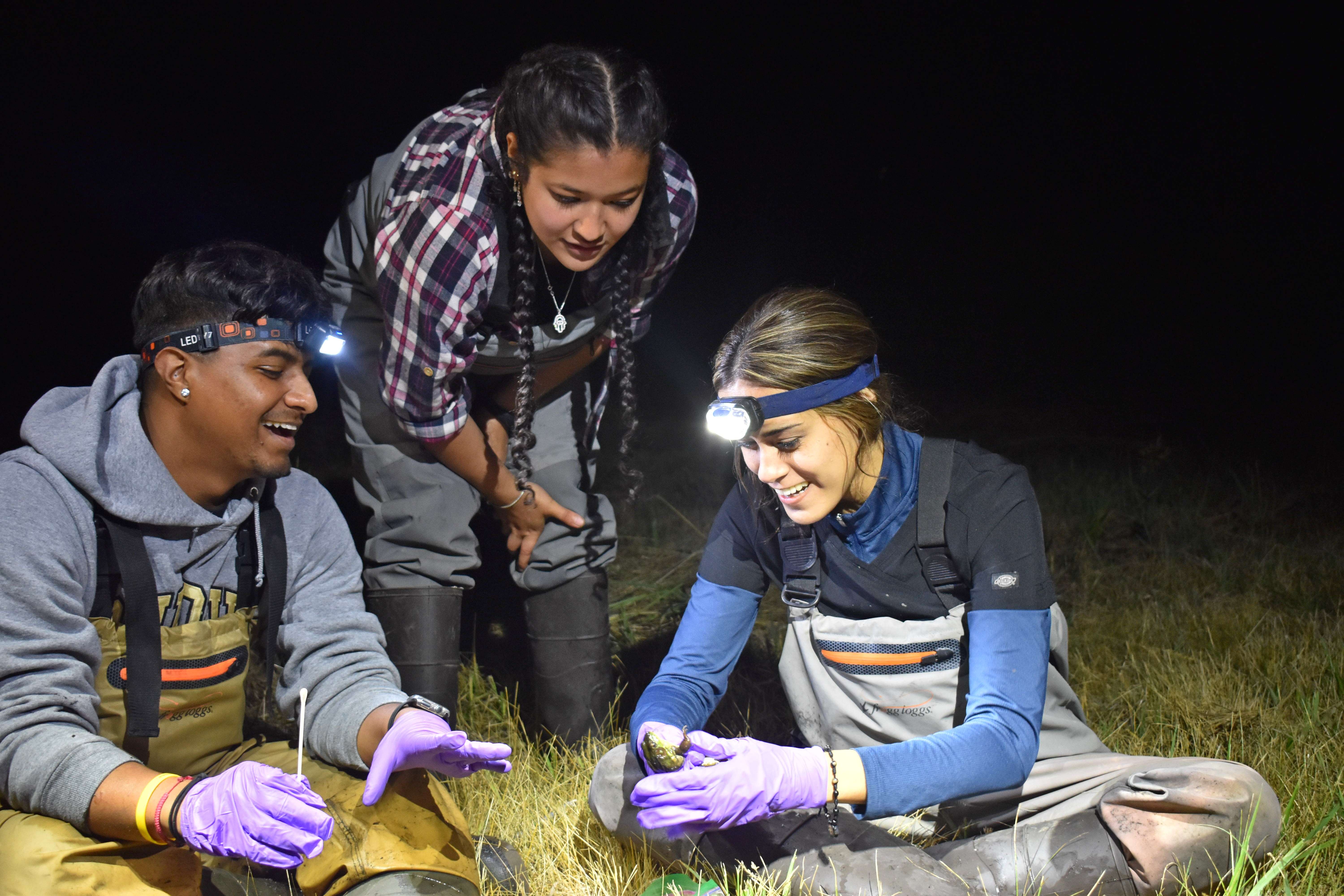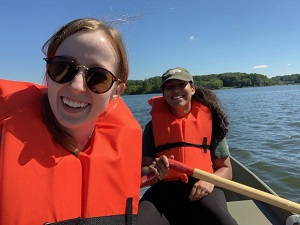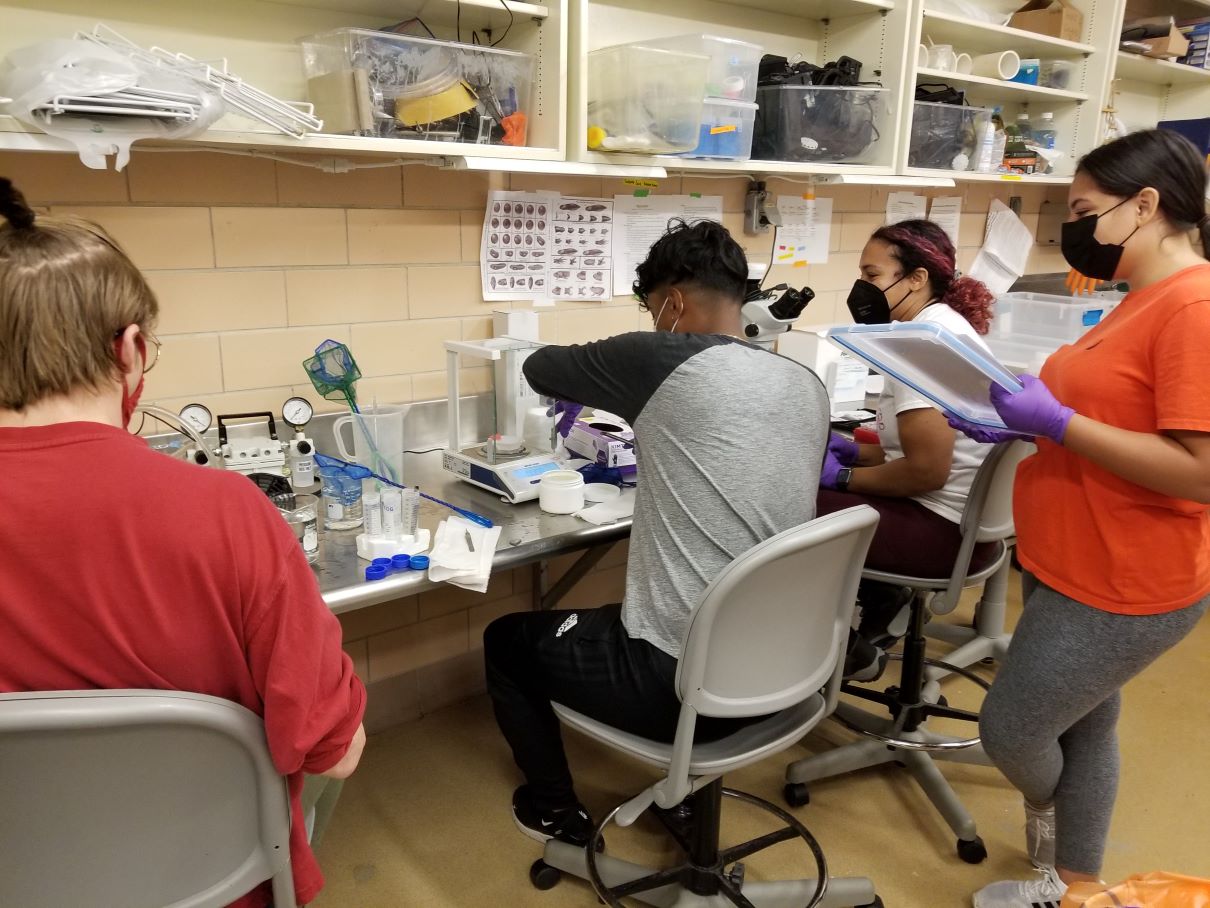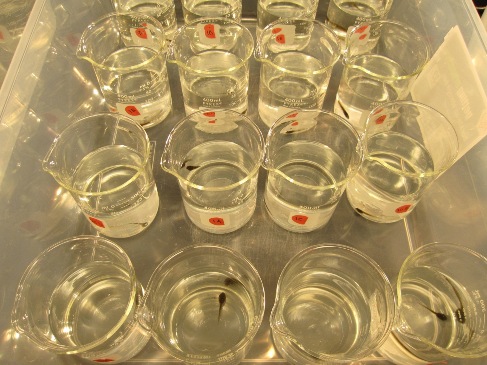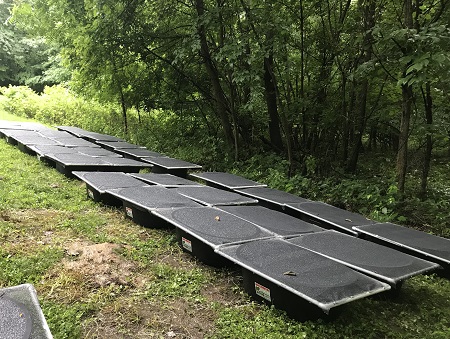Research
Research Overview
Research in the Searle lab focuses on the ecology of infectious diseases in freshwater systems using a combination of field surveys, experiments (lab and mesocosm) and modeling. Our primary hosts systems are freshwater zooplankton (Daphnia) and amphibians (with a focus on chytridiomycosis). These complementary systems allow us to investigate a wide range of ecological questions and mechanisms. Below we outline several recent projects.
Biodiversity-disease relationships
Major changes to biodiversity are occurring around the world, which can alter the risk of infectious disease. We have been studying how species differ in host competence and how these differences can help scientists predict what happens when communities lose or gain species. Additionally, because species composition can change throughout the year, we are working to understand how host phenology and seasonal variation in habitat use can affect biodiversity-disease relationships. This work is primarily supported by an NSF CAREER grant to Dr. Searle.
Evolutionary rescue in host-pathogen systems
Understanding how populations can survive when faced with deadly pathogens is increasingly important. We are studying how evolutionary rescue, which occurs when a population evolves to survive environmental change that would otherwise cause extinction, might occur when a pathogen is present. This work is primarily supported by an NSF BEE grant to Dr. Searle (Co-PI: Mark Christie).
Disease risk across space
For host species, the risk of infection, morbidity, and mortality varies greatly across space. We have been identifying environmental predictors of Bd infection in amphibians in the Midwestern US and Central America. This work has included combining field surveys with analyses of existing datasets to quantify disease risk, host species loss, and range shifts across different spatial scales.
Freshwater salinization
In many temperate regions freshwater ecosystems are being salinized through anthropogenic activities including the use of road salts. We have been studying the direct effects of elevated salinity on aquatic organisms as part of collaborations with other labs through GLEON. We are also studying how salinity can affect organisms by altering disease risk for Daphnia and amphibians.
